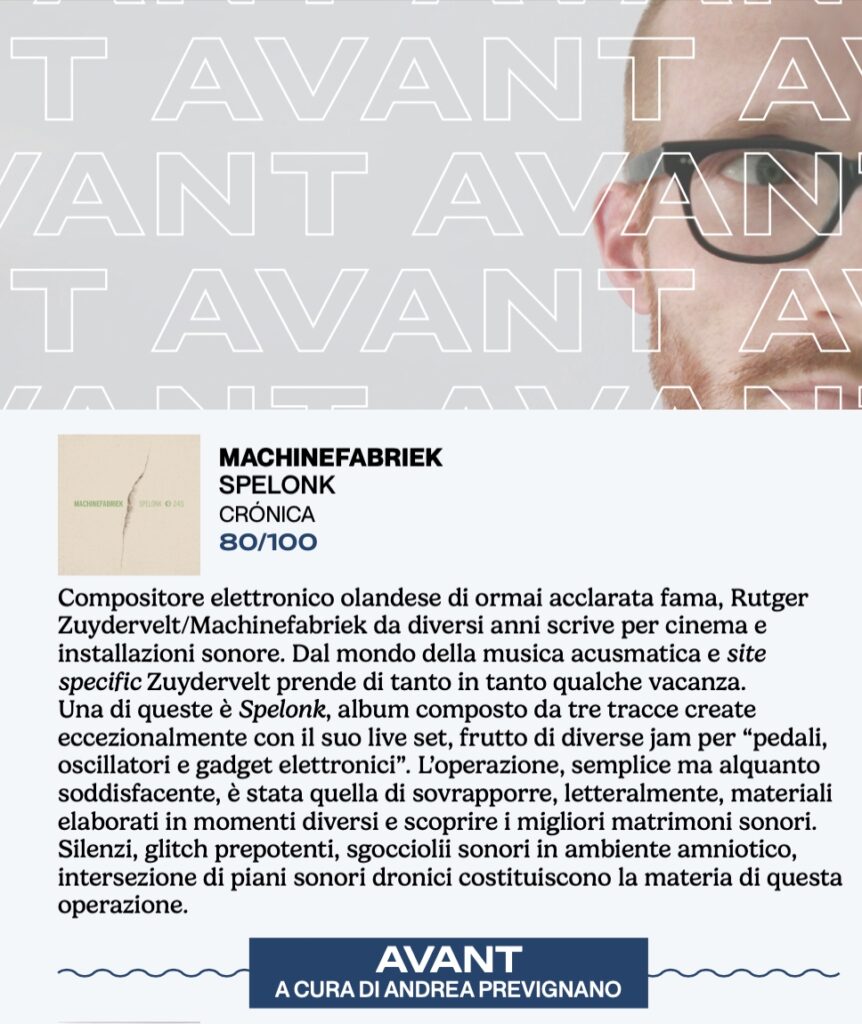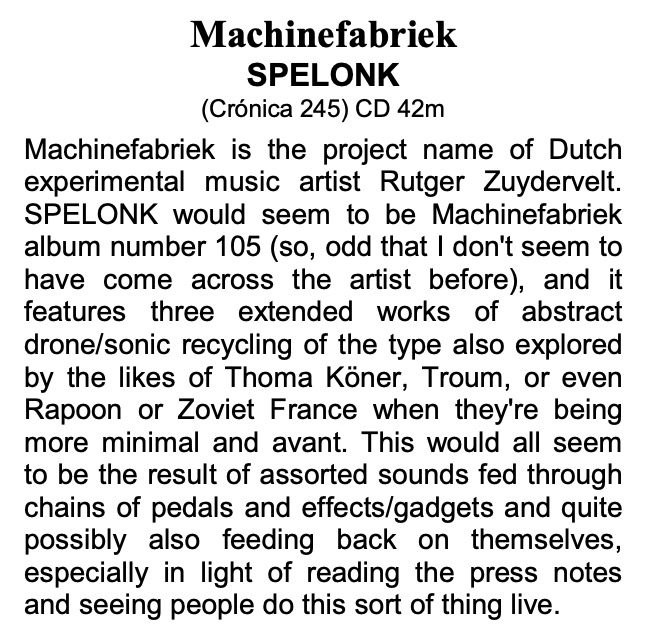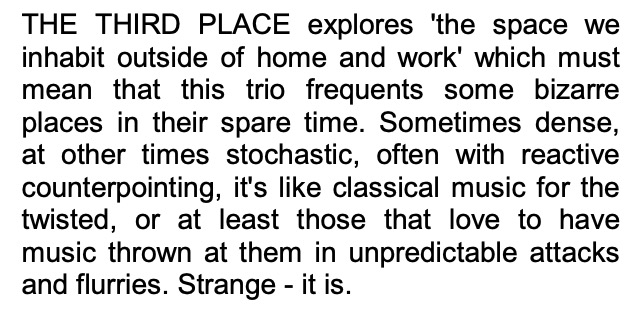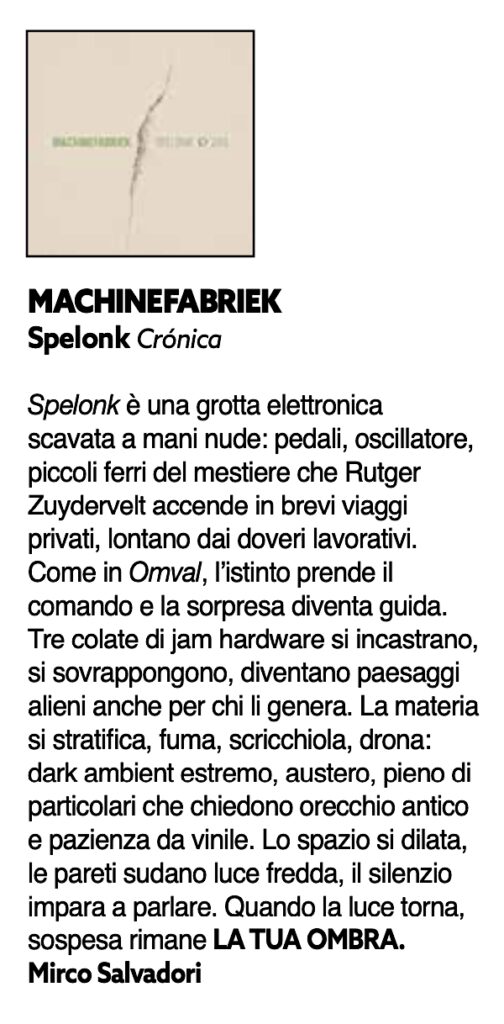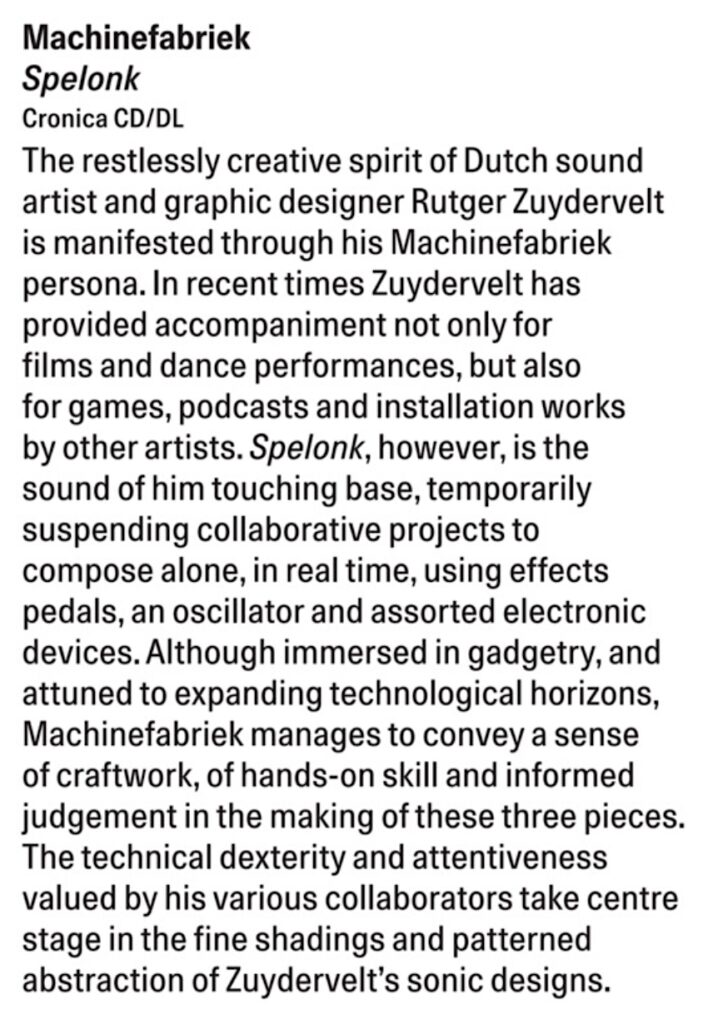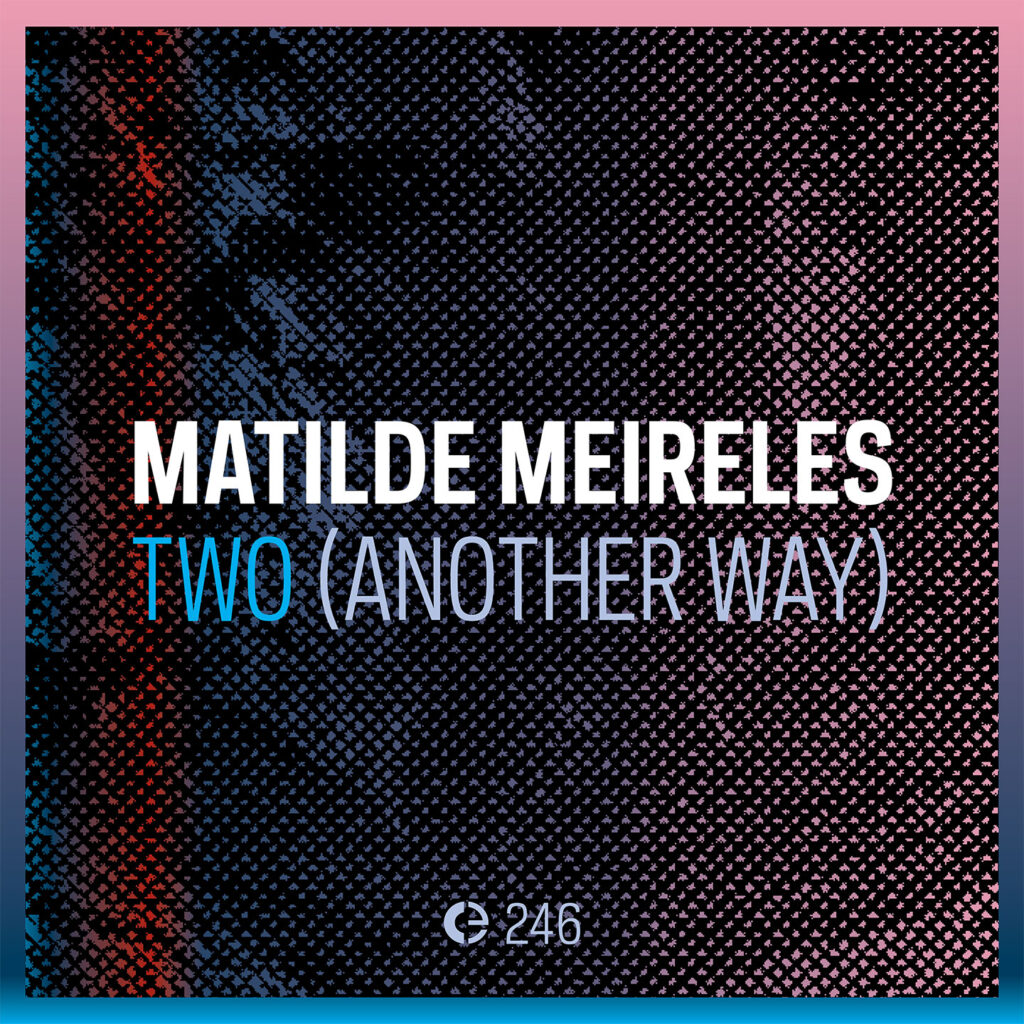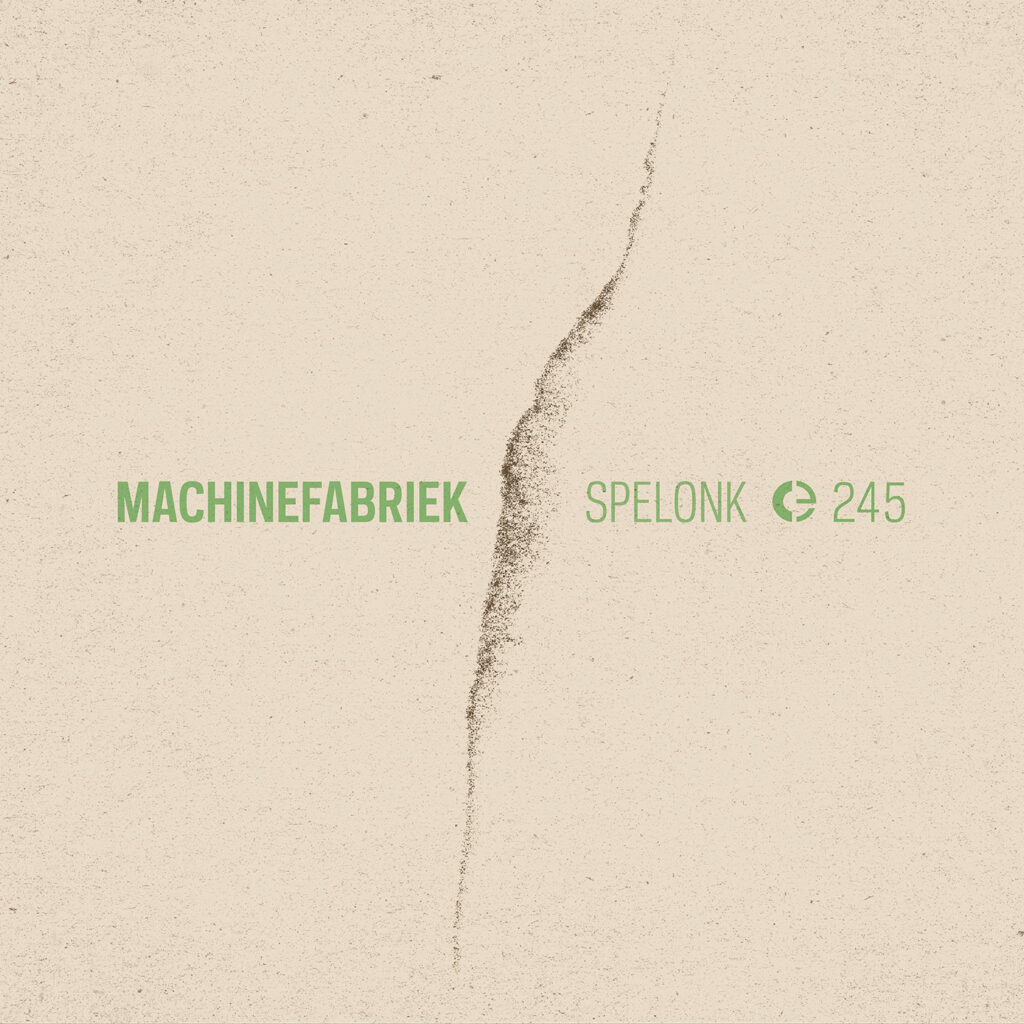
Suivi par intermittence sur ces pages, Machinefabriek fait partie de ces artistes trop prolifiques pour assurer des recensions exhaustives de ses publications. C’est donc à l’occasion d’un album sur Crónica (label lui aussi irrégulièrement suivi) qu’on retrouve le musicien néerlandais, près de vingt ans (!) après la dernière chronique d’un disque en solo. Spelonk, avec ses intitulés de morceaux simplement numérotés, s’avance comme une bande-son destinée à des images (film ou spectacle de danse, ce n’est pas précisé) et réalisée avec quelques pédales d’effets, de l’électronique et un oscillateur.
Assez abstrait et minimaliste, le résultat propose tapotements hétéroclites, petits larsens et manipulations diverses, sans jamais que l’ensemble ne sonne comme trop cérébral. De fait, une certaine forme de chaleur, voire d’âme, transparaît en permanence pendant la quarantaine de minutes que dure le disque, même quand des éléments plus métalliques sont mis en avant par Rutger Zuydervelt ou lorsque des notes plus acérées percent le continuum sonore (le milieu de Spelonk II).
Sans jamais verser dans quelque chose de malaisant à écouter, le Néerlandais offre une réflexion sur la combinaison, un peu aléatoire, entre ses différents matériaux, couplant des bidouillages un peu basiques avec des micro-rythmiques ou des simili-larsens. De même, l’appariement, au début de Spelonk III, d’un objet rebondissant (telle une balle de ping-pong) et de bleeps très synthétiques, paraissant presque venir des années 80, rend le propos sympathique et stimulant, tout comme, plus loin, l’association entre un souffle lointain et des touches éparses façon sonar.
via Etherreal



